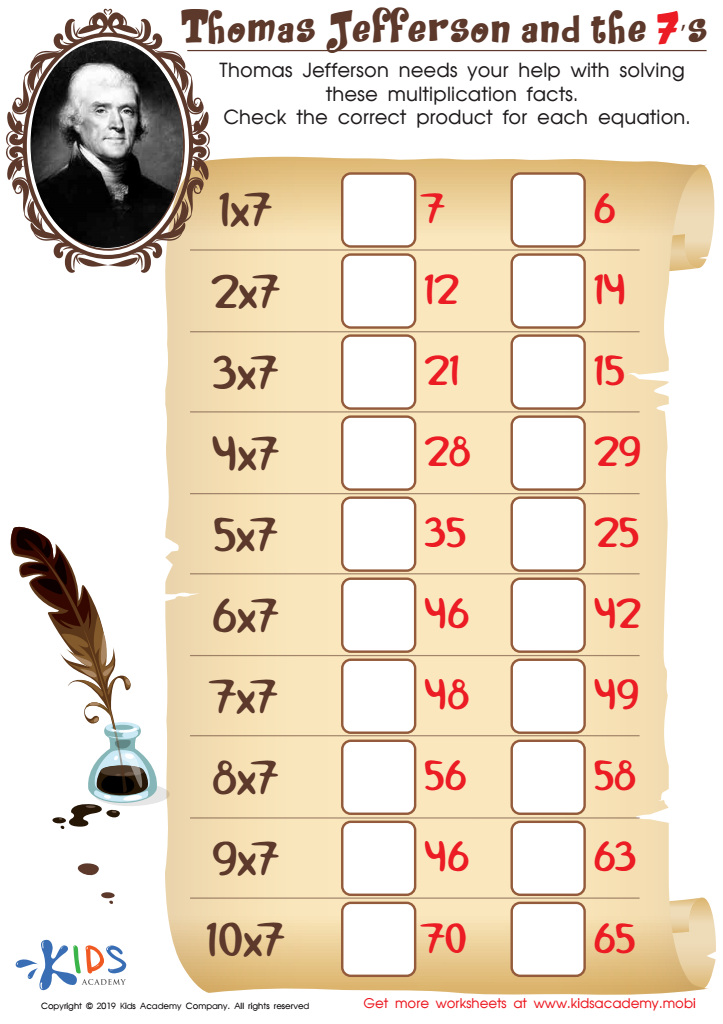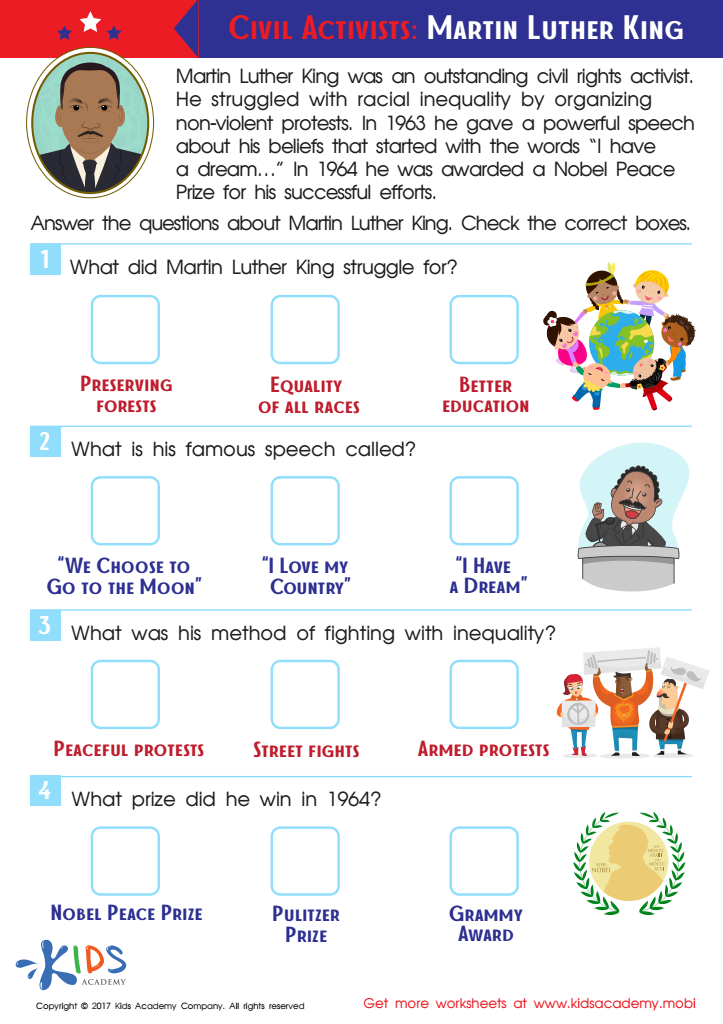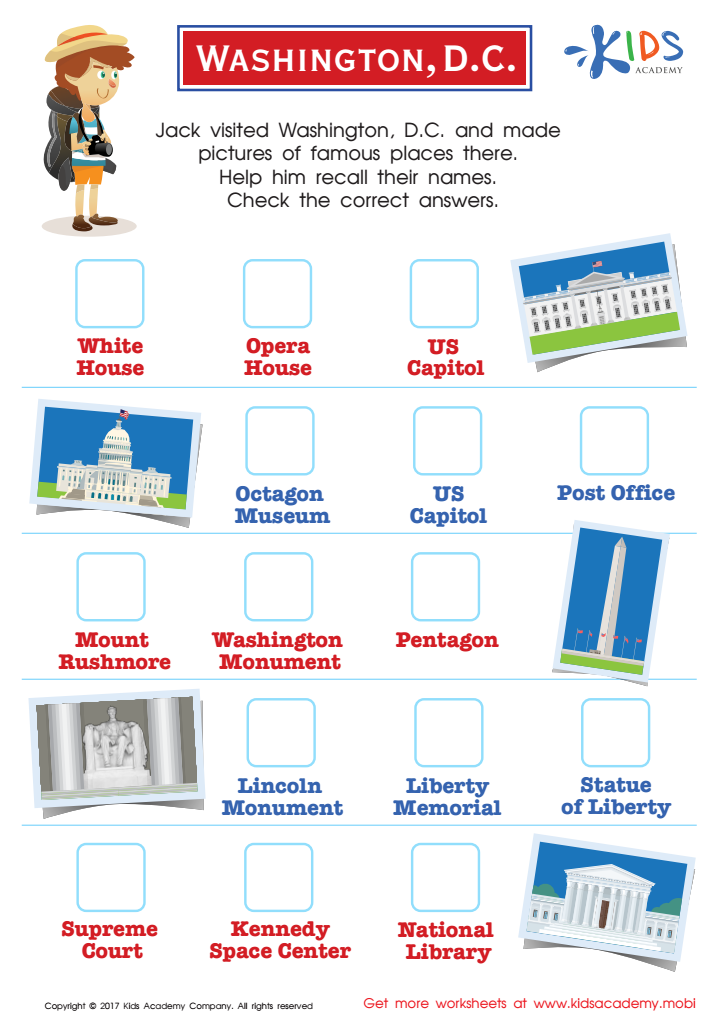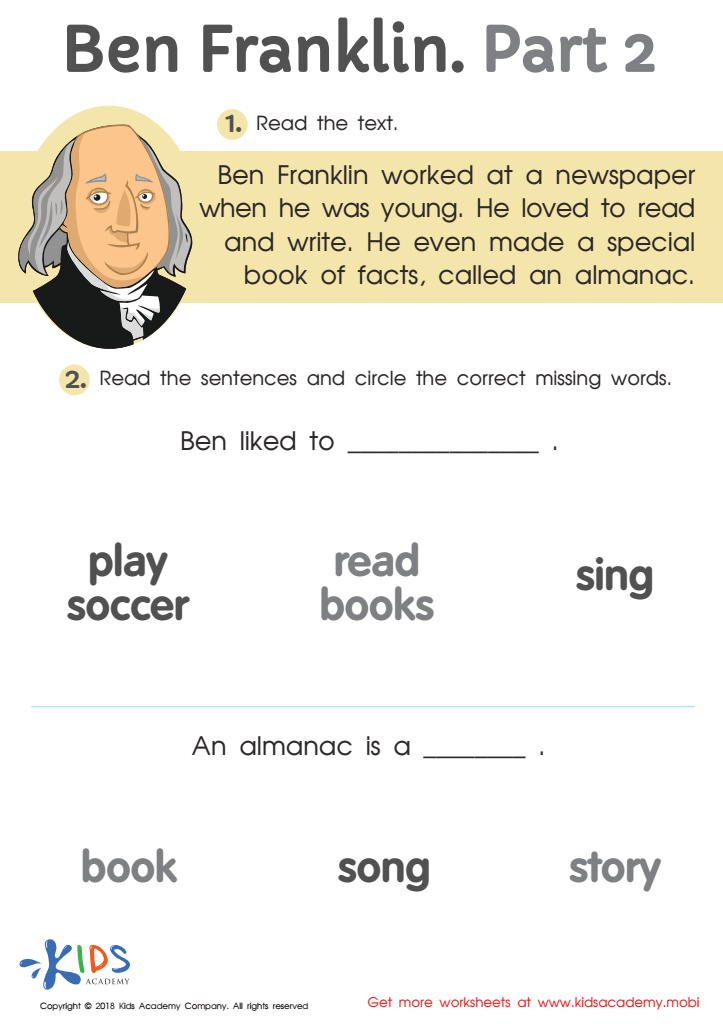Historical Knowledge Governance and Civics Worksheets for Ages 6-9
5 filtered results
-
From - To
Explore our collection of Historical Knowledge Governance and Civics Worksheets tailored for ages 6-9. Designed to captivate young minds, these printable resources furnish a foundational understanding of history, government structures, and civic responsibilities. Our expertly crafted activities encourage critical thinking, foster a love for learning, and build essential skills through engaging exercises. Whether at home or in the classroom, these worksheets make learning fun and interactive, helping children grasp vital concepts effortlessly. Ignite their curiosity and empower them with knowledge that shapes informed, responsible citizens. Start your journey into history and governance today!


White House Worksheet


Thomas Jefferson and the 7’s Worksheet


Martin Luther King Worksheet


Washington D.C. Printable Worksheet


Ben Franklin Part 2 Worksheet
Parents and teachers should care about teaching Historical Knowledge, Governance, and Civics to children aged 6-9 because these subjects lay the foundation for responsible citizenship and critical thinking. At this formative age, children are naturally curious and start to recognize societal structures and norms. By introducing history, they gain a sense of identity and an understanding of how past events shape the present and future, fostering empathy and a broader perspective on cultures and communities.
Knowledge of governance helps them grasp how rules and laws are made and the importance of participating in democratic processes. When children understand the roles and responsibilities within a government, including the concept of justice and equality, they become more inclined to value and uphold these principles in their daily lives.
Civics education teaches young learners about their rights and responsibilities as members of society. It promotes social skills like cooperation, empathy, and respect for diversity. Engaging activities such as classroom elections, discussions about fairness, and problem-solving tasks reinforce these concepts in tangible ways. By investing in this area of education, parents and teachers not only enhance academic skills but also nurture well-rounded citizens who are prepared to contribute positively to their communities. Through early education in these areas, children can grow into informed, thoughtful, and active participants in their world.

 Assign to My Students
Assign to My Students














